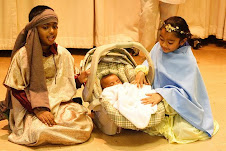Some pertinent questions on the centre and source of
liturgy…
Passover is the
defining moment in the history of God’s people. ‘This shall be for you a
memorial day, and you shall keep it as a feast to the Lord; throughout your
generations you shall observe it as an ordinance forever.’ (Ex 12:14) ‘…they
prepared the Passover… And as they were eating, he took bread, and blessed, and
broke it, and gave it to them, and said, “Take; this is my body.” And he took a
cup, and when he had given thanks he gave it to them, and they all drank of it.
And he said to them, “This is my blood of the covenant, which is poured out for
many…” (Mk14:16, 22-25).
Jesus seemingly
took freedom to alter the ritual and add his own, may be in view of the impending
arrest, trial and conviction/crucifixion. Luke adds ‘Do this in remembrance of
me.’ (22:19). Paul, an associate of Luke, further exhorts in his first letter
to the Corinthians: ‘…Do this, as often as you drink of it, in remembrance of
me.” (11:25). The Acts of the Apostles don’t have any direct mention of this
being remembered other than ‘And they devoted themselves to the apostles’
teaching and fellowship, to the breaking of bread and the prayers.’ (2:42).
Now, the
questions that prop up from such differing accounts and discontinued traditions
are that:
·
Why John left out this ‘great’ tradition?
·
Why Acts doesn’t have any direct reference to this?
·
If at all the apostles/disciples/elders claim the
place of Jesus, rather dare to identify with him, why and how and since when?
·
Since when the present form of ‘Eucharist’ start and
for what?
·
Since when money/stipend came to be associated with
this?
·
If it were for livelihood in a poor church among the
poor people, why should it still continue when the church is rather rich and
people can otherwise afford to the livelihood of their pastors?
·
What was behind the evolution of Jesus’ disciples
from ‘the Way’ to home churches to Christians to the Church which devolves into
ever so many denominations without the qualification of Christian even?
·
What is the logic behind the reported speech/quote
when the celebrant claims to be ‘alter Christus’ and how come the bread and
wine become the body and blood of Jesus/Christ?
·
What are the justifications for concelebration, high
and low Masses and so on?
·
Was it not brought down as another form of commercial
activity rather than spiritual one?

